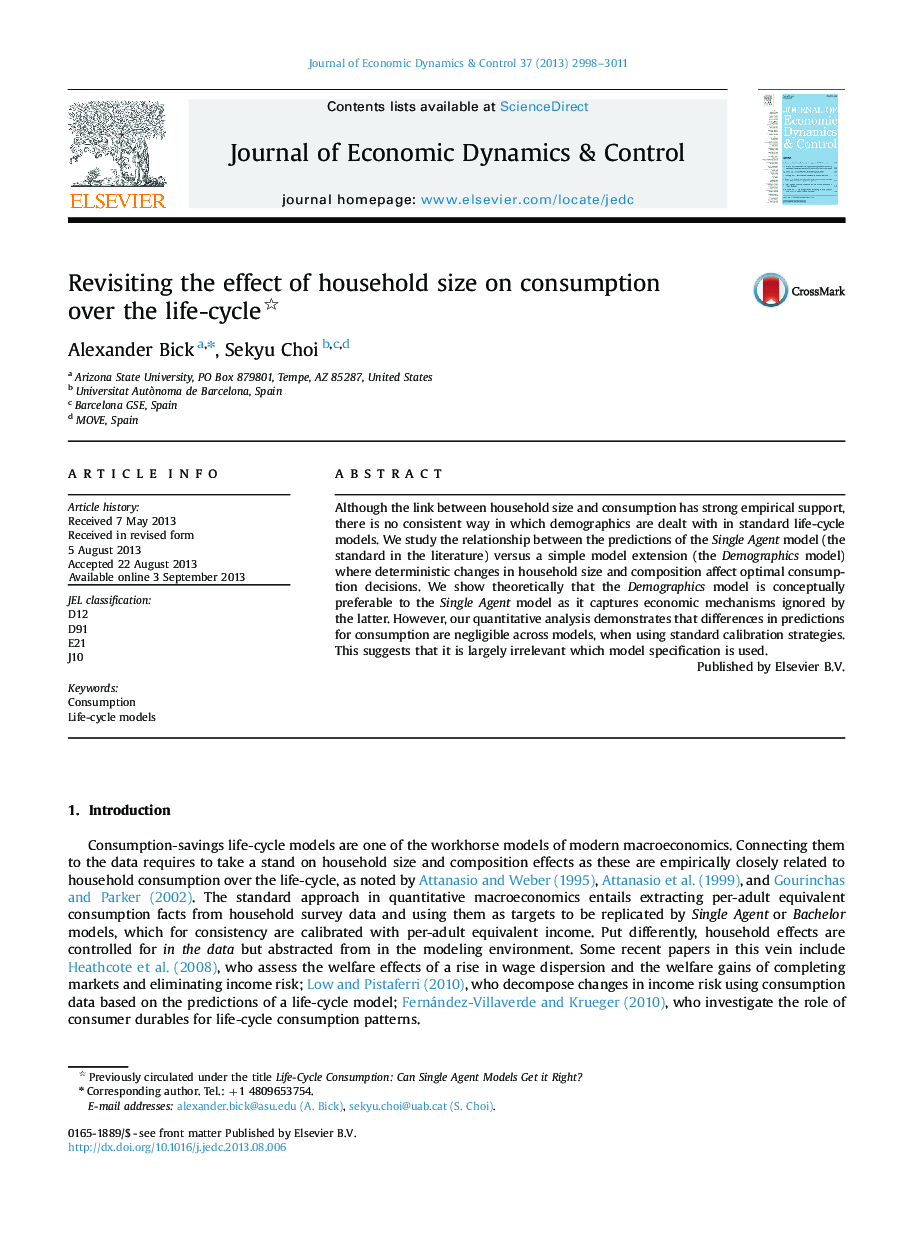| Article ID | Journal | Published Year | Pages | File Type |
|---|---|---|---|---|
| 5098684 | Journal of Economic Dynamics and Control | 2013 | 14 Pages |
Abstract
Although the link between household size and consumption has strong empirical support, there is no consistent way in which demographics are dealt with in standard life-cycle models. We study the relationship between the predictions of the Single Agent model (the standard in the literature) versus a simple model extension (the Demographics model) where deterministic changes in household size and composition affect optimal consumption decisions. We show theoretically that the Demographics model is conceptually preferable to the Single Agent model as it captures economic mechanisms ignored by the latter. However, our quantitative analysis demonstrates that differences in predictions for consumption are negligible across models, when using standard calibration strategies. This suggests that it is largely irrelevant which model specification is used.
Related Topics
Physical Sciences and Engineering
Mathematics
Control and Optimization
Authors
Alexander Bick, Sekyu Choi,
